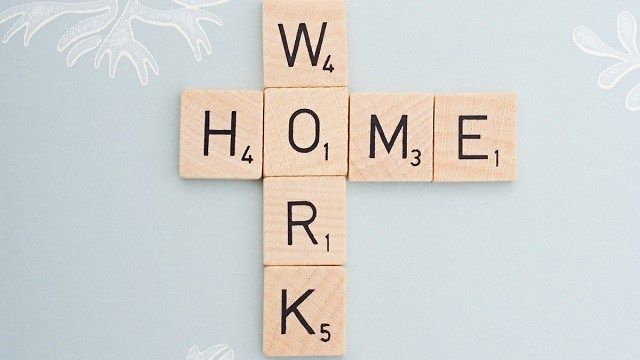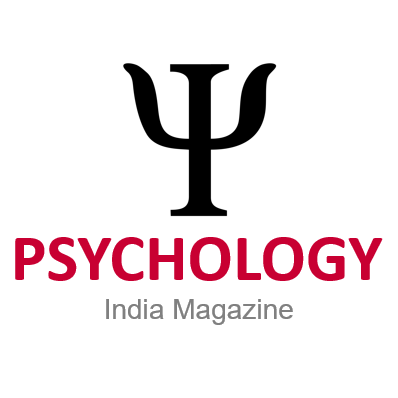COVID-19 crisis has transformed the way we operate on environment. It is probably for the first time in this century that we have witnessed a period of halt in our lives. Because of the lack of vaccine, the only cure available is to take precautions. Social distancing, quarantine, mask, sanitizers, boosting immunity, hygiene maintenance are the medicines for COVID-19. With the advent of COVID-19, our role identities have been severely challenged. It has impacted almost every sphere of our lives. Innovations in the form of technology has once again proved to be unstoppable and this time technology has brought offices at home. The arrival of work at home has impacted our work life balance.
The concept of work life balance tries to strike a balanced function between the demands of the work and home. Home and office are the two inevitable domains of our lives. Zedeck and Mosier (1990) and O’Driscoll (1996) have provided several models to explain the relationship between work and life outside work. It could be observed by the view presented by the segmentation model which hypothesized that work and non-work are two distinct domains of life that are lived quite separately and have no influence on each other are no more applicable. It could be observed that today the environment has become very turbulent in nature. Gone are the days when work and office were considered to be distinct. Today both work and home are sharing the boundaries with each other. Homes are the places which are very personal to us. The functions ranges from holding responsibilities to finding a cosy corner for ourselves. Homes provide us meaning, introspection and satisfaction. It`s a place where we relate, we understand, nurture and care for our family. Work on the other hand embraces the mark of our professional world. Work provides us with the capacity to display our domain specific knowledge and content. Being for others by leading, mentoring or by following others. Roles are predefined, structured and formal. The unification of work and home provides meaning to our existence.
The amalgamation of home and office have severely challenged once again the notion of work life balance. Adopting the sanguine outlook of life, it could be observed that COVID 19 has restricted our movements but it has not restrained our work. Work from home is now the new normal. From the other side, it has casted an impact on our identities. Work from home has resulted in diminishing boundaries between work and home. The morning starts with laptops and mobiles in our hands and closes with the same. Long working hours, looking after home, managing domestic responsibilities, arranging essential commodities for daily living are proving to be really taxing us. Work from home is much more taxing. Incessant hassle with technology, our constant chase to be effective, meeting deadlines, home care, looking after family, rising cases of COVID-19 are all adding to stress and making us fretting for our future. Online work required much more efforts because physical presence was missing. It has led to increased documentation, constant struggle to be visible and audible, sharing screen, providing demonstration, managing and collaborating with teams at workplaces. It appears that in the quest of converting our virtual presence exactly like our physical presence we are ignoring the aspect of our existence subsequently this is impacting our social, spiritual and health related domains of our lives. We are almost bringing our professional self to our personal self. Our role status has somewhere replaced our personal role identities. This view could be supported by the spillover model which hypothesized that one world can influence the other in either a positive or negative way.
Compensation model of work life balance proposes that what may be lacking in one sphere, in terms of demands or satisfactions can be made up in the other. In the current pandemic our work domains have increased so much that we are hardly able to compensate our roles. As a result of this it has resulted into conflict model which proposes that with high levels of demand in all spheres of life, some difficult choices have to be made and some conflicts and possibly some significant overload on an individual occur. This has proved not only physically straining but also resulted in psychological strain. The phase of COVID 19 has changed the dynamics of home and work. Where work is done with the help of technology, we are struggling to manage our homes. Restrained movement, non-availability of domestic help, looking after family, getting essential commodities. Prioritising work and home have led to increased pressure, anxiety, frustration and conflict. Subsequently our mental health is being affected in pursuit of managing everything.
It is to be noted that work from home is not eventually a new way out. Many MNCs and IT sectors have believed in the concept of work from home. The question to be pondered is what is new in this phase? Some of the probable explanation could be the fact that COVID-19 has forced us to remain in our homes. Psychologically we are under the pressure to stay at home. Being at work place was much more comforting. Things which could be said and done within a minute is now to be arranged online. Virtual presence is the new reality. Subsequently we are losing the human contact and comfort which we used to receive. Managing home is also serving a deterrent. Every member of the family is at home, busy working online as result the usage of devices has increased. Though we are at home physically, psychologically we are in the virtual world. All this has made life difficult for us.
To beat the odds we need we need to decipher the right understanding of work life balance .To strike balance between work and home is a subjective phenomenon. Objectively it is difficult rather unrealistic to calculate and divide equal hours for work and home. Spending equal time is not the solution to strike a balance, rather spending time meaningfully on work and quality time at home with family is the need of the hour.
Knock the blurred Boundaries
Prioritise your work: Office work is never ending. Too much rationalization of work everyday will only make you anxious and apprehensive regarding the future. Instead of this approach it is required that the work which you perceive as important should be on the to- do list of your day. It`s ok if your work is pending. The desire to complete all work in one day leaves you in a state of cognitive overload and as a result you start feeling drained out.
Communicate your expectations: It is always advisable to communicate with your colleagues to what you expect for the day. Ask them for feedback. This will provide reflections as well as creative view points also.
Delegate work at home: Every member in the family is equally responsible for home chores. Before you start your work, light and little responsibilities could be given to family members also. Be sure that each member has different motivation to pursue the work. Allocate the reinforcement based on the member`s age, need and requirement.
Sometimes a “NO” is required: Be very clear for your day. Take a strict decision say like after 7:00 P.M it`s my family time. Communicate your working hours to superiors as well as to your team. Left over work can be scheduled at first priority to the next day.
Take assistance from the domain specific people: Do you also get stuck with managing the work which is note your core domain? If yes, then this is necessarily a time waste. Reach out to people who are expert in their domain specific work (like reaching out to the IT team for fixing issues rather trying it yourself).
Once a week celebrate the YOLO time: The much-needed week during the week ends should be YOLO life i.e You live Only Once. During weekends, give time to yourself also. Move to the most cozy corner of your home and spend time with only yourself. Remember you are also very important person in your family. Nurture and pamper your self to have your wellbeing enhanced.
The above article was written by Dr. Akancha Srivastava. She is working as Assistant professor in the Department of Psychology, School of Social Sciences at CHRIST (Deemed to be University) Delhi NCR. She completed her Ph.D. from Defence Institute of Psychological Research (DIPR-DRDO) in MoU with Bharathiar University Coimbatore. She was JRF and SRF at Defence Institute of Psychological Research (DIPR-DRDO). She has also worked with the prestigious Indian Institute of Management, Indore. She has varied experience in research as well as teaching. She is also the coordinator of Internal Quality Assurance Cell (IQAC) at her department. She has the experience of handling audits at her workplace. As a resource person she has conducted webinars, workshops and other academic related activities. Her areas of interest are Organizational Behaviour, Human Resource Management and Positive Psychology.



Very insightful information has been shared in this article.
Very practical and excellent observation and explanation